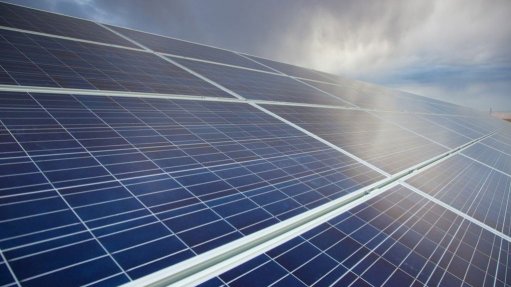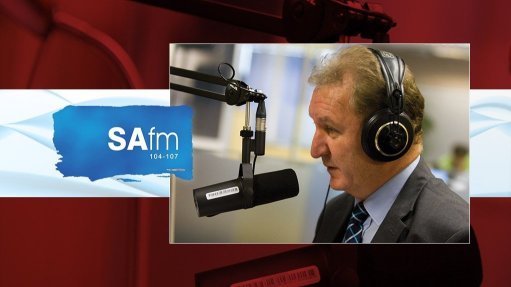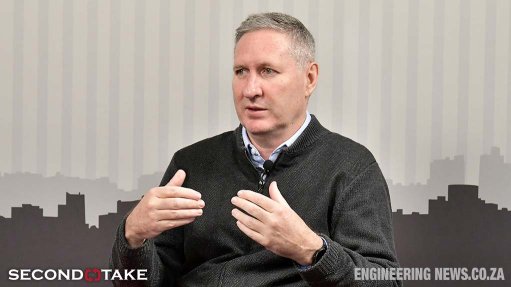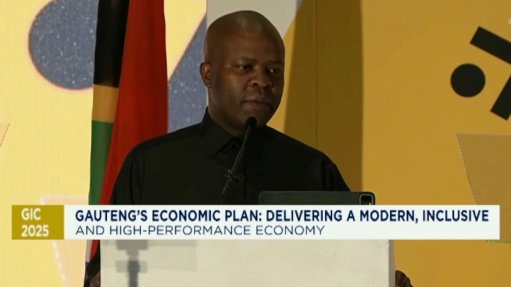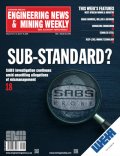Monetary Policy Committee does more harm than good, academics argue
Gordon Institute of Business Science economics lecturer Dr Roelof Botha says hawkish monetary policy has curtailed South Africa’s gross domestic product (GDP) growth by R560-billion.
He explains in a statement that, for the past five years, South Africa’s economy has increasingly been suffering from a demand deficiency, which constitutes one of the key reasons for real GDP growth having stopped in its tracks.
“Since 2015, millions of South African households and business owners alike became extremely frustrated about the Monetary Policy Committee’s (MPC’s) inexplicable decision to start increasing the repo rate.
“The adoption of a restrictive monetary policy stance, which followed immediately after the retirement of the previous South African Reserve Bank (SARB) governor Gill Marcus, has resulted in an increase in the financing cost of capital of more than 100%,” Botha notes, calling it an act of “economic absurdity”.
The result has been negative real growth of private sector credit extension, negative real growth of fixed capital formation and, ultimately, negative GDP growth and a substantial increase in unemployment.
Botha highlights that the negative effect of unduly high interest rates operates through two primary channels. These are firstly households that rely on some form of credit to buy goods and services that incur higher debt servicing costs.
Effectively, Botha says this phenomenon has the same effect as that of raising tax rates, as people are left with less disposable income.
Secondly, Botha notes that businesses of all sizes that plan on expanding their productive capacity, for example through fixed capital formation, such as investment in delivery vehicles or machinery, have to factor in the higher cost of capital into their feasibility calculations.
He says this automatically leads to a decline in the net return on investment. In many instances, the return on investment reaches zero, which leads to the cancellation of postponement of any expansion and, therefore, lower output in the economy.
“Lowering interest rates has the opposite and economically benevolent effect. With due regard to the standard caveat that inflation should be under a measure of control, lower interest rates will automatically lead to a decline in the cost of credit and the cost of capital, thereby stimulating capital formation and household consumption expenditure, which together account for 78% of South Africa’s GDP,” Botha points out.
QUANTIFYING THE DAMAGE
Botha and University of Johannesburg College of Business Economics Professor Ilse Botha conducted an econometric modelling exercise that forecast what South Africa’s GDP would have been if monetary policy had not changed.
They have determined that GDP would have been more than R560-billion higher in 2019 than the figure of marginally more than R5-trillion that was published by Statistics South Africa.
“At the current ratio between taxation revenues and GDP, this translates into an additional amount of R145-billion that would have been available to the National Treasury with the preparation of the 2020/21 National Budget.
“This would have led to a larger measure of fiscal stability and could have been used for, for example, providing assistance to Eskom, creating new infrastructure and delivering basic services,” the two academics stated.
Additionally, they say monetary policy that is accommodating could have provided assistance to the President’s economic reform policies.
“The current monetary policy stance of the SARB is akin to self-inflicted economic sanctions. It is time to deal decisively with South Africa’s most pressing economic policy priority, namely higher growth and employment creation.
“Lower interest rates will facilitate this, but not in a piecemeal fashion,” they state.
They add that the SARB is “way behind the curve”, arguing that a very deep cut in the repo rate is required – at the very least the removal of the gap between the upper target range for inflation and the average consumer price inflation for 2019, amounting to 190 basis points.
It is also necessary to change the manner in which the MPC is constituted, to allow for ex-officio participation by the National Treasury and adequately qualified economists.
Comments
Press Office
Announcements
What's On
Subscribe to improve your user experience...
Option 1 (equivalent of R125 a month):
Receive a weekly copy of Creamer Media's Engineering News & Mining Weekly magazine
(print copy for those in South Africa and e-magazine for those outside of South Africa)
Receive daily email newsletters
Access to full search results
Access archive of magazine back copies
Access to Projects in Progress
Access to ONE Research Report of your choice in PDF format
Option 2 (equivalent of R375 a month):
All benefits from Option 1
PLUS
Access to Creamer Media's Research Channel Africa for ALL Research Reports, in PDF format, on various industrial and mining sectors
including Electricity; Water; Energy Transition; Hydrogen; Roads, Rail and Ports; Coal; Gold; Platinum; Battery Metals; etc.
Already a subscriber?
Forgotten your password?
Receive weekly copy of Creamer Media's Engineering News & Mining Weekly magazine (print copy for those in South Africa and e-magazine for those outside of South Africa)
➕
Recieve daily email newsletters
➕
Access to full search results
➕
Access archive of magazine back copies
➕
Access to Projects in Progress
➕
Access to ONE Research Report of your choice in PDF format
RESEARCH CHANNEL AFRICA
R4500 (equivalent of R375 a month)
SUBSCRIBEAll benefits from Option 1
➕
Access to Creamer Media's Research Channel Africa for ALL Research Reports on various industrial and mining sectors, in PDF format, including on:
Electricity
➕
Water
➕
Energy Transition
➕
Hydrogen
➕
Roads, Rail and Ports
➕
Coal
➕
Gold
➕
Platinum
➕
Battery Metals
➕
etc.
Receive all benefits from Option 1 or Option 2 delivered to numerous people at your company
➕
Multiple User names and Passwords for simultaneous log-ins
➕
Intranet integration access to all in your organisation






